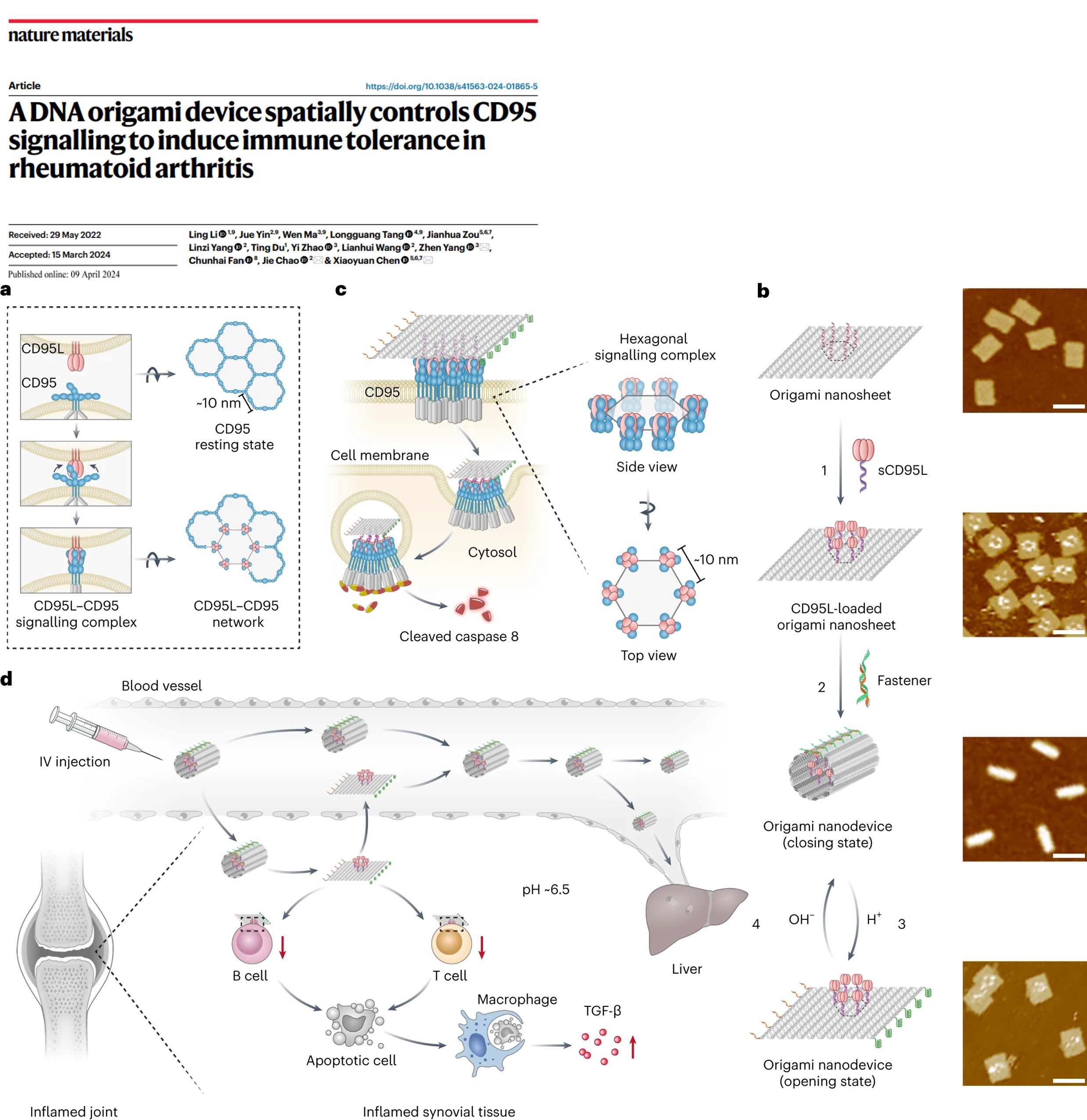
On April 9th, our recently work about the DNA origami device which can spatially control CD95 signalling to induce immune tolerance in rheumatoid arthritis was accepted by Nature Materials. This is our first paper in Nature Materials this year, and we will be dedicated to developing more therapeutic nanodevices for disease treatment in the future.
DNA origami is capable of spatially organizing molecules into sophisticated geometric patterns with nanometric precision. Here we describe a reconfigurable, two-dimensional DNA origami with geometrically patterned CD95 ligands that regulates immune cell signalling to alleviate rheumatoid arthritis. In response to pH changes, the device reversibly transforms from a closed to an open configuration, displaying a hexagonal pattern of CD95 ligands with ~10 nm intermolecular spacing, precisely mirroring the spatial arrangement of CD95 receptor clusters on the surface of immune cells. In a collagen-induced arthritis mouse model, DNA origami elicits robust and selective activation of CD95 death-inducing signalling in activated immune cells located in inflamed synovial tissues. Such localized immune tolerance ameliorates joint damage with no noticeable side effects. This device allows for the precise spatial control of cellular signalling, expanding our understanding of ligand–receptor interactions and is a promising platform for the development of pharmacological interventions targeting these interactions.
Please find more details at: https://www.nature.com/articles/s41563-024-01865-5



